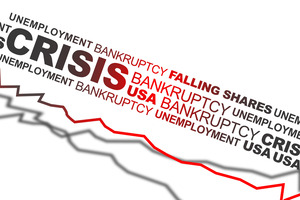Falling behind on payments on a vehicle can be a frightening experience especially if the lender notifies you of intent to repossess. Most of us realize when we purchase a new vehicle that repossession is a possibility. However, we skim the portion of the sales contract assuming it will never happen to us.
But what if it does happen to you? What can you do if the unexpected occurs and your financial situation causes you to fall behind on car payments?
Here’s what you need to know:
- Repossession can occur if you are in default on your vehicle loan. It can also occur in some cases if you fail to insure the vehicle.
- In many instances, a vehicle can be repossessed without prior notice, as long as you are behind on payments.
- Lenders are not permitted to use physical force or threaten to do so when repossessing your property. The law states they cannot “breach the peace,” during the repossession, but what this means varies from situation to situation.
- In most cases, lenders are permitted to trespass onto your property to repossess a vehicle. They might also be able to alter the property to make removal of the vehicle easier.
- In most cases, a lender will need to notify you of their intent for the property following the repossession. For instance, if the intent is to auction the item, you must be informed of the time, date, and location of the auction. Depending on the circumstances of the sale, you might have the right to contest the sale. This is one of the reasons it is important to consult an attorney.
- If there were any personal items in your vehicle during its repossession, they should be returned to you.
- You might still be responsible for the amount of money you owe on a vehicle loan, even if the vehicle is repossessed. Never assume repossession is a “solution” to your financial challenge! The lender will still have the authority to pursue a judgment against you for the remaining balance of the loan.
- Prior to the sale of the repossessed item, you might have a right to cure. This means you can pay the balance of what you owe in full, in addition to repossession costs, and the vehicle will be returned to you. You might also have the option to buy the vehicle at auction.
- Filing for bankruptcy triggers an automatic stay, which means the lender will be prevented from selling your vehicle without special permission from the court. At the very least, it stops the immediate action and gives you time to decide how best to handle the situation. For more information on what an automatic stay can accomplish, view this information provided by Cornell University Law School.
Specific repossession laws vary from state to state, which is why it is important to work with an attorney familiar with the laws in your state.
Contact a Bankruptcy Attorney in Tampa FL
If you are concerned about repossession, your vehicle was recently repossessed, or you are struggling financially and believe bankruptcy could provide a solution, we can help. Contact the Law Offices of Robert M. Geller at 813.254.5696 to schedule a consultation or to discuss your case and determine your next best step.




























![Signs That You May Need to File Bankruptcy [Infographic]](https://djml3wkzi26ea.cloudfront.net/wp-content/uploads/2021/01/signs-chap7-v-chap13.jpg)
![How To File for Bankruptcy [Infographic]](https://djml3wkzi26ea.cloudfront.net/wp-content/uploads/2020/07/bankruptcy-steps-infographic-web.jpg)










